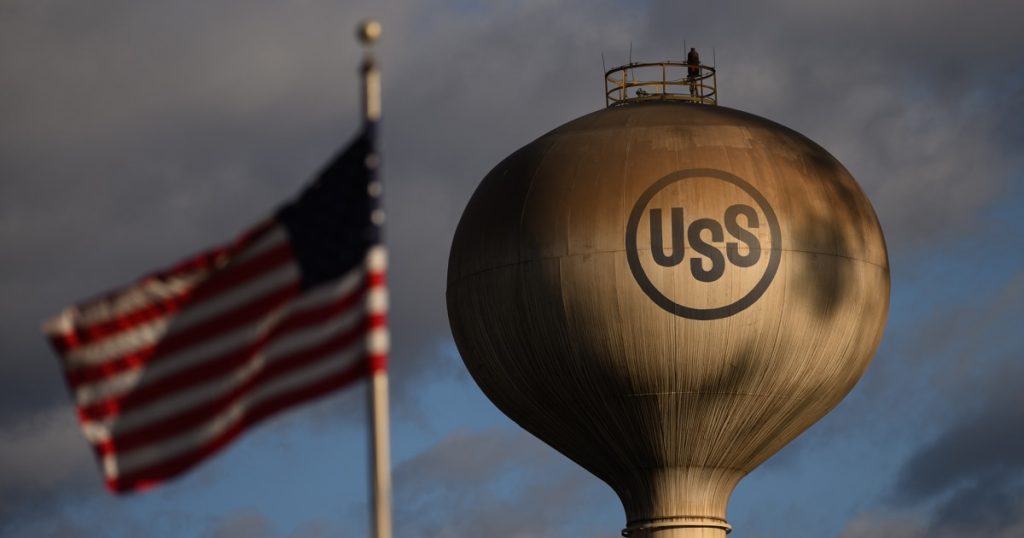President Joe Biden is set to announce his decision to block Nippon Steel’s proposed $14.9 billion acquisition of U.S. Steel, citing concerns over national security and the impact on American manufacturing capacity. U.S. Steel had agreed to be purchased by the Japanese-owned conglomerate in December, but the Biden administration opposed the deal, stating that U.S. Steel should remain an American company. U.S. Steel executives have warned that the failure of the deal could jeopardize thousands of union jobs and the company’s Pittsburgh headquarters. The potential loss of jobs in Pennsylvania, a critical swing state, could have political consequences.
U.S. Steel, once one of the largest companies in America, currently employs around 20,000 workers, significantly down from its peak of 340,000 in 1943. The company’s valuation by Nippon at about $15 billion is comparable to companies like Snap Inc. and Hyatt Hotels. Biden’s decision to block the deal has caused fluctuations in the company’s stock value, with shares initially declining but then recovering slightly. Nippon has expressed opposition to any efforts to scuttle the agreement, emphasizing the benefits of the deal for the American steel industry.
The Committee on Foreign Investment in the United States (CFIUS) is still reviewing the deal, which involves assessing national security implications of foreign investments in American businesses. Nippon Steel has argued that their investment in U.S. Steel would strengthen the American steel industry and that they are the only willing and able party to do so. The Japan-U.S. Business Council has raised concerns about any attempts to politicize the CFIUS review process, calling for a fair and objective evaluation of the sale.
Nippon Steel, a major producer of crude steel globally, with a value exceeding $21 billion, has roots in firms dating back more than a century. The company is facing increased competition from China and views the acquisition of U.S. Steel as a strategic move to strengthen its position in the market. U.S. Steel executives have highlighted the benefits of the deal, such as improved competitiveness and stability for the company and the American steel industry. However, the Biden administration remains steadfast in its decision to block the acquisition, underscoring the importance of maintaining U.S. ownership of a company with such historical significance.
The fate of U.S. Steel and the potential implications of the blocked acquisition remain uncertain, with U.S. Steel executives emphasizing the importance of the deal for the company’s future. The decision to block the acquisition reflects broader concerns about protecting American interests and industries from foreign control. The impact of Biden’s decision on the steel industry and the economy more broadly will likely be closely watched as the administration continues to navigate issues related to national security and economic competitiveness. Ultimately, the future of U.S. Steel and its workforce hangs in the balance as the company grapples with the consequences of the failed acquisition deal.


